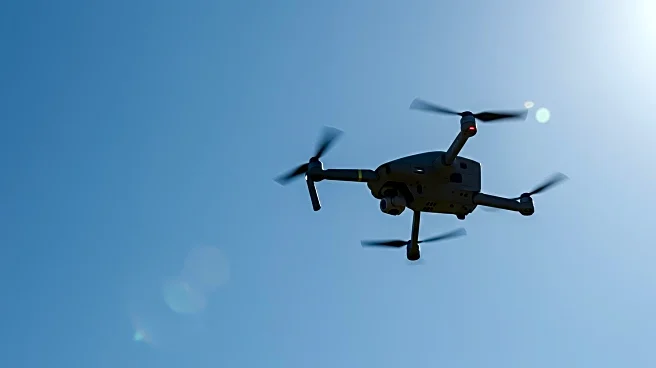What's Happening?
Kratos is developing additional variants of the XQ-58A Valkyrie drone following the U.S. Marine Corps' decision to transition its experimental work with the drone into a full program of record. The Valkyrie, which first flew in 2019, has evolved into a family of drones with several known variants, including a Conventional Takeoff and Landing (CTOL) type. Kratos has partnered with Airbus to develop a version for the German Luftwaffe, expected to be fielded by 2029. The company is also exploring opportunities with two new customers, potentially expanding the production run to 48 aircraft. The Marine Corps has expressed interest in runway-independent variants, aligning with its expeditionary concepts of operations.
Why It's Important?
The expansion of the Valkyrie drone program signifies a shift in military drone strategy, emphasizing versatility and adaptability. The Marine Corps' interest in runway-independent variants highlights a focus on operational flexibility in diverse environments. Kratos' partnership with Airbus for a European-focused variant indicates potential international market growth. The development of multiple variants could enhance the U.S. military's capabilities in electronic warfare and kinetic strikes, offering strategic advantages. The increased production run may also bolster Kratos' position in the defense industry, potentially leading to economic benefits and job creation.
What's Next?
Kratos is in the process of pricing and planning for an expanded production run, with expectations to produce several new variants. The Marine Corps and Airbus are key stakeholders in the development of these drones, with potential contracts from other customers. The Marine Corps' operationalization of the Valkyrie could lead to further advancements in drone technology and tactics. Kratos' focus on international markets, including Europe and potentially the Pacific, suggests ongoing efforts to secure new partnerships and contracts.
Beyond the Headlines
The development of the Valkyrie drone variants raises ethical and strategic considerations regarding the use of unmanned systems in combat. The focus on electronic warfare capabilities may influence future military engagements and defense policies. Additionally, the collaboration with Airbus highlights the growing importance of international partnerships in defense technology, potentially impacting geopolitical dynamics.









